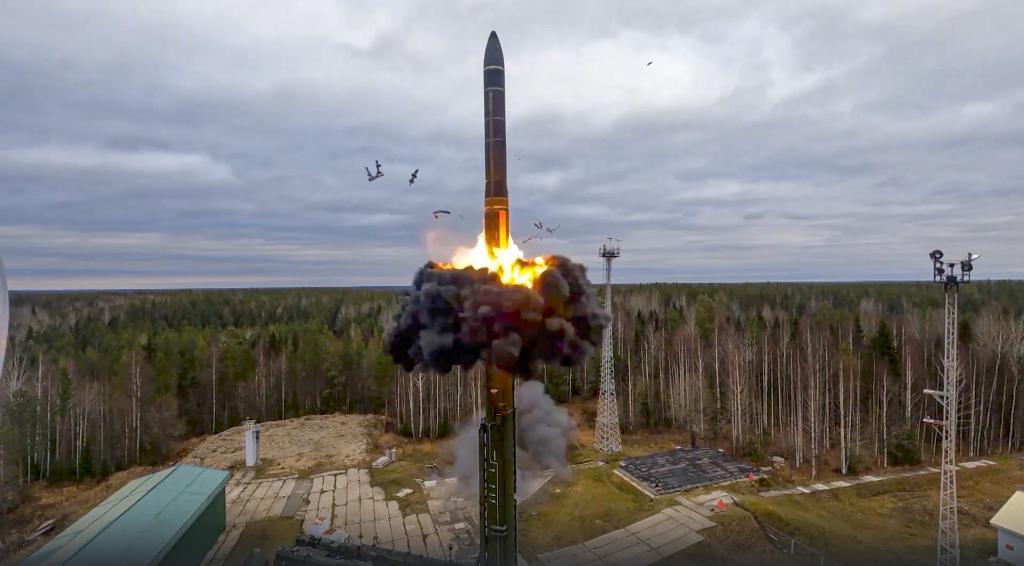Ukraine says Russia launched an intercontinental ballistic missile overnight targeting Dnipro city in the central-east of the country, which, if confirmed, would be the first time Moscow has used such a missile in the war.
In a statement Thursday on the Telegram messaging app, Ukraine's air force did not specify the exact type of missile, but said it was launched from Russia's Astrakhan region, which borders the Caspian Sea.
It said an intercontinental ballistic missile was fired at Dnipro city along with eight other missiles, and that the Ukrainian military shot down six of them.
Two people were wounded as a result of the attack, and an industrial facility and a rehabilitation center for people with disabilities were damaged, according to local officials.
While the range of an ICBM would seem excessive for use against Ukraine, such missiles are designed to carry nuclear warheads, and the use of one would serve as a chilling reminder of Russia's nuclear capability and a powerful message of potential escalation.
The development comes as the war has taken on a growing international dimension with the arrival of North Korean troops to help Russia on the battlefield — a development that U.S. officials said prompted U.S. President Joe Biden's policy shift on allowing Ukraine to fire longer-range U.S. missiles into Russia. The Kremlin responded with threats to escalate further.
The attack comes two days after Russian President Vladimir Putin signed a revised nuclear doctrine that formally lowers the threshold for the country's use of nuclear weapons. Ukraine on Tuesday fired several American-supplied longer-range missiles and reportedly fired U.K.-made Storm Shadows on Wednesday into Russia.
Putin has previously warned the U.S. and other NATO allies that allowing Ukraine to use Western-supplied longer-range weapons to hit Russian territory would mean that Russia and NATO are at war.
The new doctrine allows for a potential nuclear response by Moscow even to a conventional attack on Russia by any nation that is supported by a nuclear power.
While the doctrine envisions a possible nuclear response by Russia to a conventional strike, it is formulated broadly to avoid a firm commitment to use nuclear weapons and keep Putin's options open.
